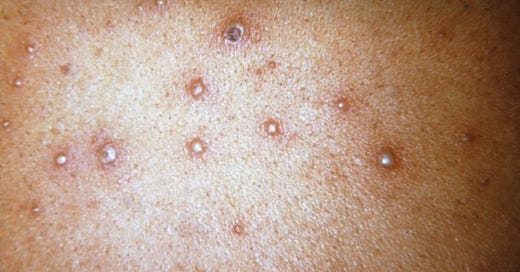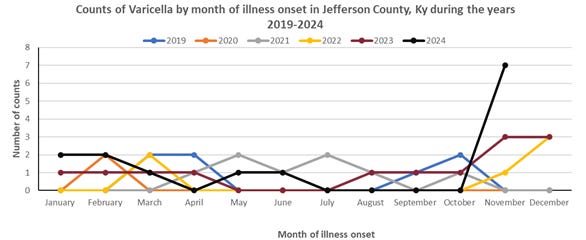Officials with Louisville Metro Health are reporting a spike in probable and confirmed cases of chickenpox (varicella). So far this year, 14 cases have been reported with seven of them being reported in November. The cases have all been in people who were either unvaccinated or too young to be vaccinated.
“Chickenpox is highly contagious and caused by the varicella-zoster virus,” said Dr. Kris Bryant, associate medical director of The Louisville Metro Department of Public Health and Wellness (LMPHW) and pediatric infectious disease specialist at Norton Children’s. ”It easily spreads through touching the blisters or through the air when someone with chickenpox coughs or sneezes. A person with chickenpox is contagious 1 to 2 days before the rash begins and until all the blisters have scabbed over. Children who are not immune to chicken pox can also be infected by contacting the blisters of a person with shingles.”
What is smallpox and how does the clinical presentation differ from chickenpox?
Chickenpox is very contagious. Symptoms include an itchy, blister-like rash in addition to other symptoms. Chickenpox illness usually lasts about 4 to 7 days.
The rash often first shows up on the face, chest and back before spreading to the rest of the body. A person with chickenpox can have as many as 500 blisters.
Complications can occur and include bacterial infections of the skin and underlying tissues, infection of the lungs, swelling of the brain, and abnormal bleeding.
Children with chickenpox need to stay home from school and childcare until all blisters are dry and have a scab.
The best way to prevent chickenpox is to get the chickenpox vaccine.
Everyone—including children, adolescents, and adults—should get two doses of the vaccine if they have never had chickenpox or were never vaccinated.
Children should get their first dose of the vaccine at 12 to 15 months old and the second dose at 4 to 6 years old.
Most people who get the vaccine will not get chickenpox. The chickenpox vaccine prevents almost all cases of severe illness. Most people who get the vaccine are protected for life.






